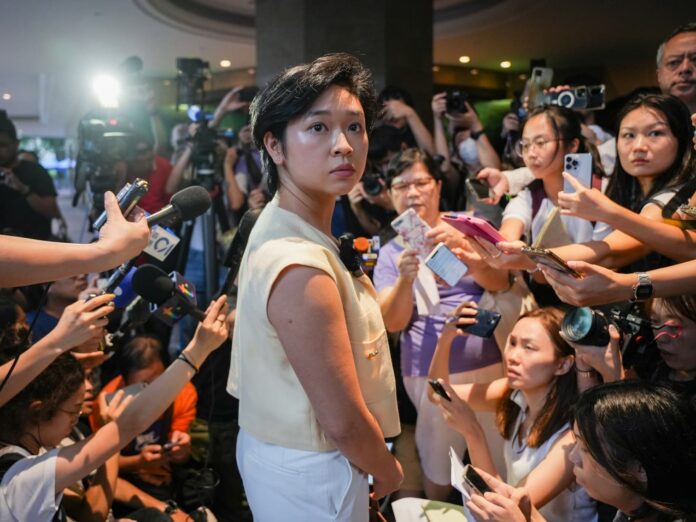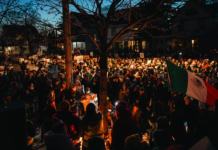International solidarity needed against the union-busters
Hong Liuxing and Garret Johnston
The Wall Street Journal, owned by the reactionary union-busting billionaire Rupert Murdoch, has fired journalist Selina Cheng after her election to the post of chairperson of the city’s biggest press union, the Hong Kong Journalists’ Association (HKJA).
Cheng was elected chairperson of the union on 22 June and has been a member of its board for three years. According to a statement issued by Cheng, “The editor said employees of the Journal should not be seen as advocating for press freedom in a place like Hong Kong, even though they can in Western countries, where it is already established.” She says she was pressured by her bosses to withdraw from the election, which she refused.
Since the defeat of Hong Kong’s 2019 mass struggle, 176 trade unions have been disbanded in the territory. Prominent trade unionists have been jailed under the draconian National Security Law imposed by the Chinese dictatorship (CCP) in 2020. Some could face life sentences on trumped up subversion charges.
It is no coincidence that dictatorial and repressive regimes suppress unions and workers’ rights. This is not only to shift the balance of power in the economy even further towards the capitalists, but also because they fear the crucial role independent trade unions can play at the heart of any mass struggle for democratic rights.
WSJ an enabler
The sacking of Cheng exposes the hypocrisy of the “free” capitalist media when it comes to democratic and labour rights. Clearly, the bosses of the Wall Street Journal are not the crusaders for democracy that they portray themselves as. The Chinese dictatorship is of course cheering this development, with its attack dogs from the Global Times celebrating that the “malignant tumour” of the HKJA has been dealt a blow.
The CCP’s attack on trade unions and media in Hong Kong aims to completely dismantle the territory’s former very fragile democratic rights. It wants to reduce these to the same level as in China, where independent trade unions are illegal. The WSJ’s flagrant attack on the HKJA and trade unionism in Hong Kong make it an enabler of the CCP’s union-busting policies.
At first sight, this could appear as something of a throwback to the time before the US-China imperialist conflict. In only a few years, Western media has shifted from a position of fawning on the CCP dictatorship and kowtowing to its every undemocratic demand, to a more hostile stance. This shift is not due to a sudden discovery that China has a repressive authoritarian government, but rather that the media – ultimately a tool of the ruling class and billionaire press barons like Murdoch – must reflect the new anti-China thrust of government policy in Western countries.
But clearly, US capitalism’s new “democratic” front against the CCP does not extend to recognising trade union rights in Hong Kong. This shows that workers fighting for democratic rights and freedom of the press can only rely on their own strength and organization.
In Hong Kong, many media workers joined the HKJA during the 2019 mass struggle as a vehicle to fight back against police brutality. On almost all demonstrations reporters were being deliberately targeted by police attacks.
International solidarity
As Selina Cheng herself states, “Reporters in Hong Kong know their editors or employers don’t always have their backs.” According to China Media Project this has not just been the Wall Street Journal. Interviews with other Hong Kong reporters confirm there is widespread pressure from the bosses of foreign press to dissuade them from getting involved with the union.
The union for US workers at the WSJ, the Independent Association of Publishers’ Employees local 1096, have rightly spoken out in defence of Selina Cheng. Calling out the management’s anti-democratic and anti-union stance is welcome. But this is also a key lesson: Western media bosses are never genuine defenders of democratic rights.
To defend union rights and press freedoms, media workers and the wider working class must stand together in Hong Kong, the US, China and internationally against all attacks whether from pseudo-democratic or authoritarian capitalism. We need international solidarity against all union-busting companies and regimes.




